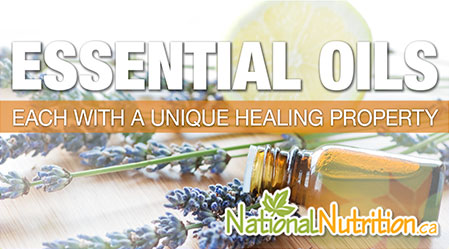
Essential Oils are a lot more than just a pretty smell.
Essential Oils: Uses, Benefits & More
Updated Mar. 14th, 2024 | Read Time: 8 Minutes | What You Will Learn:
- How Are The Best Essential Oils Extracted?
- Key Medicinal Properties of Essential Oils
- Most Common Essential Oils
- Proper Storage of Essential Oils
Essential oils are aromatic compounds extracted from several different plants. They are also known as volatile oils because they evaporate quickly, which is also how they create such a strong aroma in the air. Because of this ability to quickly create strong scents, these oils are often used in perfumes, cosmetics, soaps and other scented products. The best essential oils are steam distilled or cold pressed, pure and potent.
How Are The Best Essential Oils Extracted?
Essential oils are extracted from the plant by steam distillation, cold pressing, or solvent extraction. High-quality products create a pure product that will evaporate cleanly if dripped on a piece of paper. Each type of extraction is used for different plant materials.
Solvent extraction is used for substances like flowers that contain very little volatile oil, and those that can be damaged by the temperatures used in steam distillation. The solvents used are hexane or supercritical carbon dioxide. However, steam distilled or cold pressed performed at lower temperatures is preferred to maintain the integrity of the active compounds.
Key Medicinal Properties of Essential Oils
The benefits of essential oils are as diverse as the oils themselves. Some are diluted and used as skin treatments for acne or rashes, while others, food-grade oils, are used for internal use to fight infection or even help treat specific diseases.
Often current research will focus on specific compounds found in essential oils, to determine which one is responsible for their medicinal benefits. More traditional herbalists believe that it is the synergy between all of the active constituents in the oil that provides the full benefit. In some cases, the benefits of essential oils can simply be attributed to the effect of their scent on the brain. To stimulate the limbic system in the brain, essential oils are often used for aromatherapy in combination with massage and other balancing techniques.
Proper Dilution For Aromatherapy
Because of their extremely concentrated state, it is important to dilute essential oils in other high-quality carrier oils like olive, almond, grapeseed, or sesame. Keeping in the spirit of oil not mixing with water, an essential oil can only be diluted by mixing it with another oil. When essential oils are used without being diluted, they can cause severe skin irritation, gastrointestinal upset and even liver damage in the long term. Certain essential oils are not for internal use and can be toxic even in small amounts. It's equally important to remember that certain essential oils are toxic to pets, so be sure to only use oils that are safe for dogs and cats if you have pets.
Most Common Essential Oils
- Basil
In aromatherapy, basil oil is used to treat nervous disorders, migraines, and stress headaches. It is an energizing oil that can help to clear the mind, relieve intellectual fatigue, and improve focus. Basil oil also benefits the respiratory tract and can be useful in the treatment of asthma, bronchitis and sinus infections.
- Bergamot
Most useful in the treatment of skin conditions, diluted bergamot oil can help treat acne, boils, abscesses, and psoriasis. When using it topically, be sure to avoid sun exposure as bergamot oil is phototoxic, meaning it reacts with light to cause damage to the skin. In aromatherapy, it is used to help reduce stress, as well as treat depression and anxiety.
- Chamomile (Roman)
When diluted and used topically, Roman chamomile can be used to help soothe and calm skin that is red and inflamed. It also has gentle anti-bacterial properties, which is why this essential oil is often used by natural health practitioners in the treatment of acne, particularly on more delicate skin where Tea Tree oil may be too irritating.
- Cedarwood
This essential oil is most notably known for its soothing effects. It is also antiseptic, astringent, expectorant, and antifungal, making it very useful for the treatment of infections. It is a tonic, diuretic, and emmenagogue, meaning that it can promote urination and menstrual bleeding. It is particularly used topically for its ability to soothe itching of the skin, for balancing oily skin and for the treatment of dandruff.
- Cinnamon
We are all familiar with the earthy spicy smell of cinnamon in our food. The essential oil from the leaf is commonly used for digestive concerns like constipation and flatulence as well as exhaustion and low blood pressure. It should always be diluted to avoid irritating skin and mucous membranes. Because of its blood thinning effects, it should be used with caution in those with more severe illnesses and taking anticoagulant medications.
- Clove
In our history, clove oil was commonly used as a topical anesthetic in the mouth for toothaches and infections. It has also been found to be useful in the treatment of arthritis, asthma, bronchitis, as well as sprains and strains. It must be diluted because it is a strong mucous membrane irritant.
- Eucalyptus
One of the most commonly used essential oils for the treatment of respiratory conditions is eucalyptus oil. It can easily be used in warm water and the steam inhaled for many lung conditions such as bronchitis, catarrh, colds, coughing, fever, flu and sinusitis. It is also useful when used topically to treat arthritis, and poor circulation in small amounts. It should never be taken internally as it is extremely toxic, use it with caution.
- Frankincense
In aromatherapy, frankincense is excellent for helping with anxiety. It is considered to be grounding and calming without having a sedating effect. When used in a steam inhalation, frankincense can help to treat asthma and bronchitis, as well as reduce extreme coughing. When used topically in carrier oil, frankincense is commonly used to treat scars and stretch marks on the skin.
- Geranium
This essential oil is particularly popular for skin balancing. It is used for the treatment of acne and oily skin. Often it is used for the brightening of dull skin and reducing the appearance of cellulite. It must be diluted in carrier oil and should be used with caution as some people may experience an allergic response.
- Jasmine
We are all familiar with the warm floral scent of jasmine, but did you know that its aroma can be used to help treat depression and exhaustion? When used topically, in a carrier oil, jasmine can help to soften and protect dry and sensitive skin.
- Lavender
This essential oil is anti-viral, and anti-bacterial and can dramatically speed the healing of burns, cuts, bites, and stings. Because it is less reactive, this is one of the only essential oils that can be applied without a carrier oil. In aromatherapy, lavender is used to help promote relaxation and sleep.
- Lemon
The topical use of lemon essential oil is useful in the treatment of leg and foot conditions such as varicose veins, corns, athlete’s foot, and warts. It can also be used to help treat colds and flu and to balance oily skin. Avoid exposing skin treated with lemon oil to the sun as it can be phototoxic.
- Orange
When cleaning the house naturally, this essential oil is a mainstay. A few drops in warm water can be used to wipe down most hard surfaces to remove grease and grime and leave behind a nice fresh scent. It is a stimulating and cheering fragrance, and when applied topically in a carrier oil, it promotes lymphatic drainage and brightens skin.
- Oregano
One of the most popular essential oils for use in a variety of infections, including colds, flu and gastroenteritis, is oregano oil. It can be diluted in carrier oil and used internally to help destroy any invading micro-organisms. It is important to supplement with a probiotic when taking oregano oil internally to help replenish the intestinal flora.
- Patchouli
This aroma is most commonly associated with the “hippie” movement in the 1960s. In aromatherapy, this oil is said to have a grounding and relaxing effect. Medicinally, patchouli essential oil is used to treat a wide variety of skin conditions including acne, eczema, dermatitis, oily and/or dry skin, and athlete’s foot. Essentially, patchouli has a powerful balancing effect on the mind and body (especially skin).
- Peppermint
This essential oil is effective at blocking the nerve channels that transmit pain signals. Thus, when diluted and applied topically, peppermint oil can help to reduce the sensation of pain. It can also be used internally to help reduce gas and bloating, as well as prevent digestive spasms.
- Rose
The smell of rose essential oil is both floral and sweet and is used in aromatherapy for reducing the symptoms of grief and depression. When very dilute, its soft aroma is also used to treat insomnia. Rose oil is also frequently used topically in skin products to help benefit eczema and mature skin, especially in post-menopausal women.
- Rosemary
When it is used topically, rosemary can help to relieve joint aches and muscle pains. It is also often used to help aid digestion and prevent spasms of the gallbladder and digestive tract. Rosemary oil is another of the few essential oils that can be used without carrier oil if desired. This essential oil is used in aromatherapy to improve memory and mental clarity.
- Sage (Clary)
This essential oil is used to help treat menstrual problems such as amenorrhea and dysmenorrheal. It is also commonly used to treat respiratory conditions such as asthma, cough, or sore throat. Because of its ability to promote menstruation, this oil should be avoided in pregnancy. It can also have a significant relaxing effect that has been compared to narcotics, which is beneficial for the treatment of stress, but clary sage should be avoided when drinking or performing activities that require concentration like driving.
- Sandalwood
Another of the more common fragrances found on the market (think air fresheners), sandalwood is commonly used for skin and lung concerns. Common conditions that this essential oil can benefit are bronchitis, laryngitis, chapped/dry skin, oily skin, scars, and stretch marks.
- Tea Tree
One of the most commonly used essential oils in the treatment of skin disorders, Tea Tree oil is excellent at clearing acne, candida, athlete’s foot, ringworm, itching, oily skin and warts.
- Wintergreen
The main constituent in wintergreen oil is methyl salicylate, which has been long studied for its medicinal anti-inflammatory and pain-reducing properties. In fact, this constituent is a very close relative to aspirin. It is also warming and soothing and helps to promote self-acceptance.
Proper Storage of Essential Oils
Because of their volatile nature, essential oils can react with their storage containers, particularly those made of rubber or plastic. In general, essential oils are best handled with glass pipettes and glass storage bottles. Keep products away from pets, as essential oils can be toxic to some animals, particularly cats.






















Aide beaucoup la respiration en saison des allergies.
Much helps breathing in the allergy season.
Thanks for listing all the essential oils and their many uses. I use many of them. It states tea tree oil can be used for candida. How would one use it to get rid of candida? Could you send me an email stating how? Thank you.
Hello Jennifer,
We're thrilled you enjoyed our article on essential oils, we have more articles on individual essential oils you might like, I've linked our most popular one her for your enjoyment:
https://www.nationalnutrition.ca/articles/essential-oils/lavender-essential-oil/
AS for your questions, there are products on the market such as suppositories that are made with tea tree oil; however since most essential oils are made for use on the outside of the body, it would be advised to speak to a health care practitioner in the natural field first.
I use various types of essential oil, depending on the type of problem that I’m dealing with. They work well and give pleasant fragrance to the room.
Hello, Sharon.
Thank you for sharing. Aromatherapy has many great benefits and essential oils many uses. The most important is proper dilution before applying to the skin. Discover more about essential oils with our videos: https://www.youtube.com/watch?v=EONKjnTkE5k&list=PLFydSZTC8qlbfjY2KHRR9lCDLZNLDd5k5
I am so pleased that you carry pure essential oils. I no longer use synthetic scents which have had a detrimental effect on my health. My go to brand is usually NOW due to the price point being lower than most. I use EO in a diffuser, to make natural cleaning products and externally. It is important to not that almost all OE require dilution when used topically. Some of my favorites include: Neroli, lavender, geranium, rosemary, lime and eucalyptus. Neroli and geranium are the more expensive of the above. Thank you National Nutrition for carrying these oils. Happy customer!
Hello Shelley,
Thank you for sharing your positive experience with our range of pure essential oils. We understand the importance of using natural scents and their potential benefits for health and well-being. We are glad to know that our selection, including popular brands like NOW, meets your requirements in terms of quality and affordability.
It's great to hear that you utilize essential oils in various ways such as diffusing, creating natural cleaning products, and external use. We appreciate your reminder about the need for dilution when using certain oils topically for safety purposes.
We take pride in offering a wide variety of essential oils, including some more premium options like Neroli and geranium. Your satisfaction as a customer is our utmost priority. You can learn more about individual oils by watching our essential oil series on our Youtube channel, https://www.youtube.com/watch?v=EONKjnTkE5k&list=PLFydSZTC8qlbfjY2KHRR9lCDLZNLDd5k5&pp=iAQB
Have a healthy day